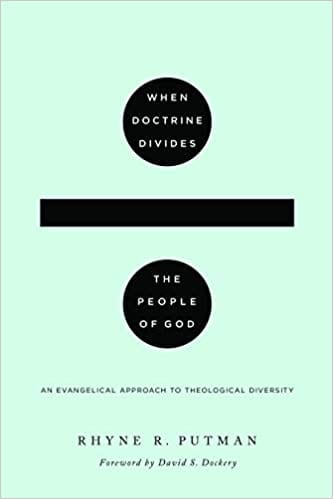BEN: Rhyne, first of all, thanks for your book When Doctrine Divides The People of God, it’s a brave book, in various ways. What prompted you to jump into the fray and write it?
RHYNE: This idea grew out of (1) my interest in theological method and (2) my frustration with the behavior of self-identifying evangelical Christians on social media. In this country, we have always had polarizing political differences, but social media, which gives everyone a public platform to voice those differences, has exacerbated tensions. Christians committed to the authority of Scripture and the proclamation of the gospel should strive to “maintain the unity of the Spirit in the bond of peace” (Eph. 4:2), but there’s been little discernible difference between the way we have handled our nuanced differences than the way unbelievers in the political sphere have acted. We have seen the rise of so-called “discernment blogs,” the fundamentalist equivalent of “cancel culture,” disparaging faithful men and women of God over second- and third-tier differences (albeit theological or political) for click counts and ad money. We (and I am including myself here) have not always been careful to maintain a helpful Christian witness in the way we talk about our brothers and sisters publicly. The same destructive spirit I have seen wrecking my own SBC context has been at work in other evangelical camps.
Watching all this heated discourse transpire, I became convinced that if we paid more attention to the way we come to our theological differences, we may exhibit more grace toward one another. That’s where theological method and hermeneutics can serve discussions of our theological differences. We don’t have to retreat into echo chambers where we only hear from those who agree with us. We also don’t have to give up the importance of biblical, doctrinal truth in favor of a doctrinally weak ecumenicism or interpretive relativism. We who share similar convictions about the authority of Scripture and the necessity of the gospel message can be concerned about truth and unity simultaneously.













